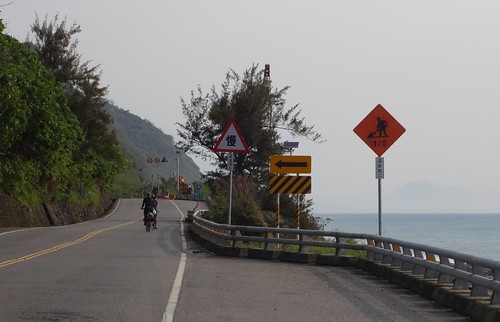Eric Chu's demand that AP correct its claim that he had agreed on eventual "unification" of Taiwan with China was not an isolated incident. It's policy.
Remember this from last year?
The Ministry of Foreign Affairs yesterday said it would demand a correction after a Chinese-language report by Deutsche Welle (DW) quoted President Ma Ying-jeou (馬英九) as saying he aims to learn from the experience of East Germany and West Germany in handling bilateral relations and “their ultimate unification.”Ma had a habit that Chu appears to be recapitulating. He'd speak to some foreign newspaper or in a foreign location, and reaffirm that Taiwan is part of China awaiting "unification" with the motherland, which the reporter would dutifully paraphrase or quote. Then the following day, when the local public woke up to discover that Ma had declared them all Chinese, a deeply unpopular position, the President would demand a retraction.
Another example is this one from 2010:
The Presidential Office yesterday released audio recording of President Ma Ying-jeou's interview with the Associated Press in an attempt to set the record straight over a controversial interpretation by the news agency on Ma's readiness for cross-strait political talks.As the always insightful James Wang noted in the Taipei Times about this "correction":
Ma denied a report by AP Tuesday suggesting that he was ready for political dialogue with mainland China in his second term if he gets re-elected, stressing that he never made such a remark nor linked political talks with his second term in the interview.
The Presidential Office Tuesday demanded AP correct their story. AP did not make such a correction. Asked by Taiwanese media on the news agency's response, AP's Taiwanese correspondent, Peter Enav, said that AP stands by its report.
His recent interview with The Associated Press (AP) was no exception. The more he spoke, the more pro-Chinese he sounded, and he showed that internationally he fears China, while at home he fears the voters. These two fears have one thing in common — fear of not being re-elected. This kowtowing and deception was at the center of his demand that AP “correct” its report about the interview.Here, with Chu, we have the same situation: Chu in a foreign country, talking about Taiwan's status. Obviously, a correction had to be demanded.
It's policy, after all.
_______________________
[Taiwan] Don't miss the comments below! And check out my blog and its sidebars for events, links to previous posts and picture posts, and scores of links to other Taiwan blogs and forums!

I frankly do not understand why Chu felt the need to go to the meeting with Xi Jinping. It hardly serves any electoral interest. The KMT is facing a steep uphill battle already and this visit certainly wouldn't do the Blues any favors in upcoming elections. I don't get the reasoning. Shouldn't the Blues have been pandering to the voters by suppressing any appearance of being pro-China?
ReplyDelete